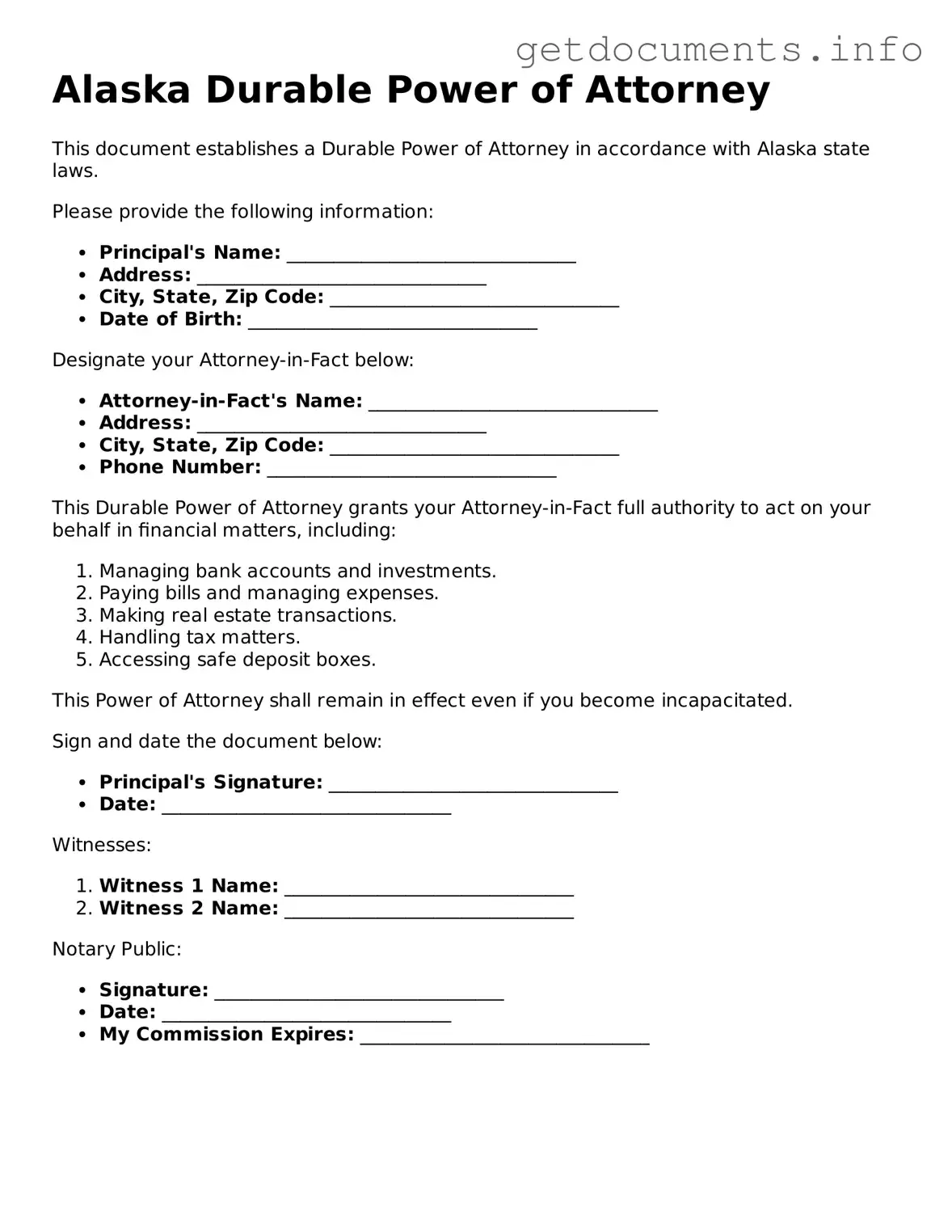Free Durable Power of Attorney Template for Alaska
The Alaska Durable Power of Attorney form is a legal document that allows you to appoint someone to make decisions on your behalf, even if you become incapacitated. This form ensures that your financial and legal matters are managed according to your wishes when you are unable to do so. Ready to take control of your future? Fill out the form by clicking the button below.
Access Durable Power of Attorney Editor

Free Durable Power of Attorney Template for Alaska
Access Durable Power of Attorney Editor
Got places to be? Complete the form fast
Fill out Durable Power of Attorney online and avoid printing or scanning.
Access Durable Power of Attorney Editor
or
⇩ PDF File
